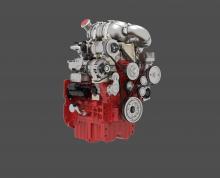The introduction of diesel hybrid vehicles in Europe will help reduce CO2 emissions. Automotive OEMs are now developing and introducing low-emission vehicles and by 2015, every other new car sold in Europe will have CO2 emissions in the range of 101-120grammes/km, according to a report by Frost & Sullivan.
The introduction of diesel hybrid vehicles in Europe will help reduce CO2 emissions.
Automotive OEMs are now developing and introducing low-emission vehicles and by 2015, every other new car sold in Europe will have CO2 emissions in the range of 101-120grammes/km, according to a report by Frost & Sullivan.
The introduction of low emission vehicles will cut overall CO2 emissions in the European Union. Diesel hybrids in particular are likely to have a positive impact on the European market and further increase the share of diesel engines in this region.
Although purchase costs are higher, diesel hybrids provide better fuel economy and lower CO2 emissions than comparable petrol hybrids. This follows the growth in popularity of diesel cars in Europe, due to their fast improving performance and better fuel economy when compared to petrol engines. Although these factors contribute to the high proportion of diesel engines in Europe, the principal drawback of diesel engines has been the challenge in controlling particulate matter (PM) and emissions of oxides of nitrogen (NOx). New engine technologies have addressed these issues however.
Automotive OEMs are now developing and introducing low-emission vehicles and by 2015, every other new car sold in Europe will have CO2 emissions in the range of 101-120grammes/km, according to a report by Frost & Sullivan.
The introduction of low emission vehicles will cut overall CO2 emissions in the European Union. Diesel hybrids in particular are likely to have a positive impact on the European market and further increase the share of diesel engines in this region.
Although purchase costs are higher, diesel hybrids provide better fuel economy and lower CO2 emissions than comparable petrol hybrids. This follows the growth in popularity of diesel cars in Europe, due to their fast improving performance and better fuel economy when compared to petrol engines. Although these factors contribute to the high proportion of diesel engines in Europe, the principal drawback of diesel engines has been the challenge in controlling particulate matter (PM) and emissions of oxides of nitrogen (NOx). New engine technologies have addressed these issues however.








